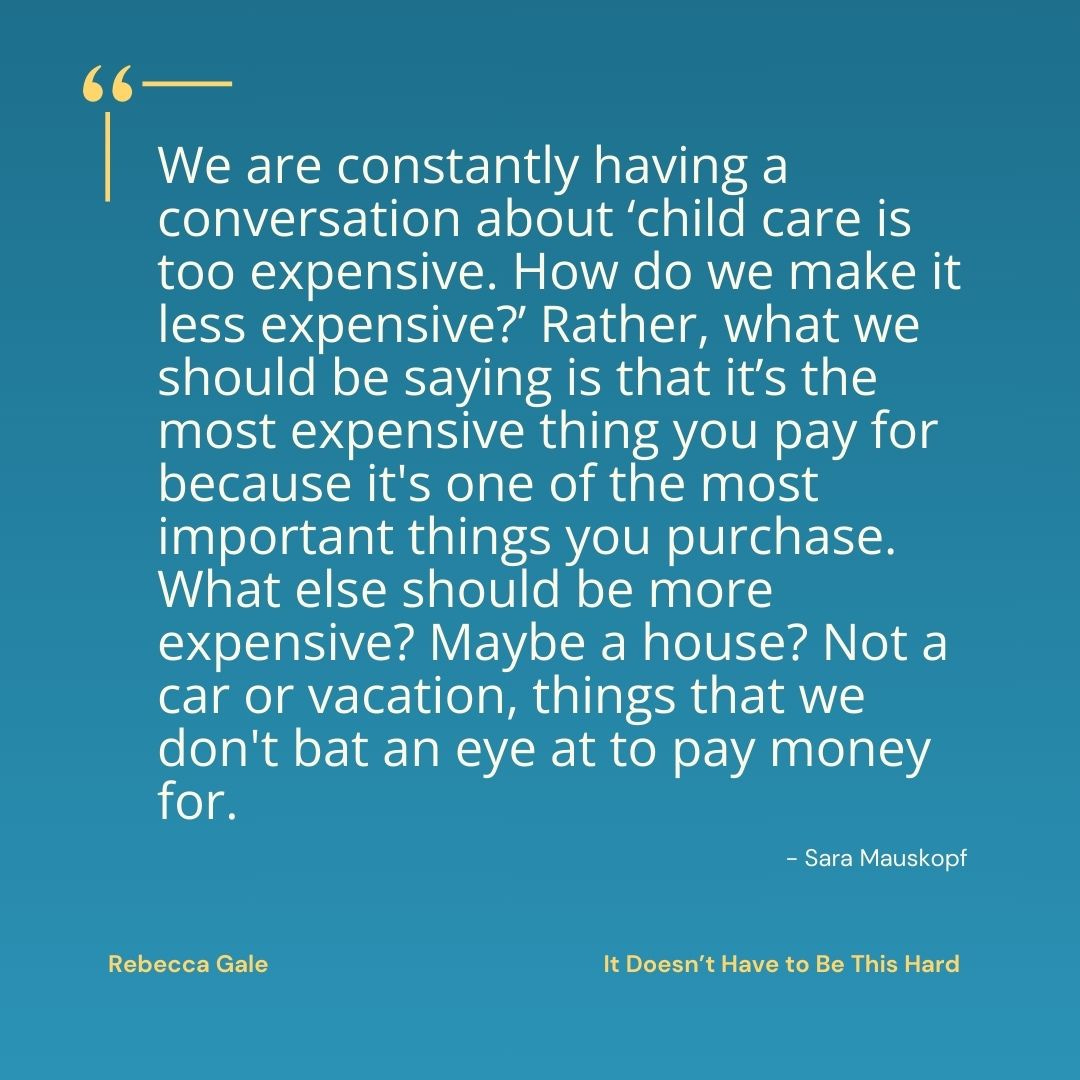About a decade ago I started something called 10Q. Around the time of the Jewish new year each fall, a series of 10 questions are sent out to reflect about your life and time at this particular juncture - hopes, fears, changes, anticipations. Questions like: what were you most proud of and what do you think next year will look like?
The answers are sealed in a (metaphorical) vault and then sent to your email inbox a year later.
After a few years of doing this myself, my husband started filling it out too. Each year, when the vault is unsealed, we share our answers. It’s like flipping to the end of a book to find out what happens: we still know exactly what those hopes and concerns were, but now we know how they’ve evolved.
One of the most common themes running through each of our 10Qs is the kids. First it was their mere existence (will we get pregnant? when?). But once they existed firmly in the world, the 10Q became about how we would care for them:
Who would step back at work? (Me, apparently).
Should we switch preschools? (Yep, let’s do it).
The full day child care program? (For this kid, yes).
What about this nanny or this unicorn babysitter who clips kids’ fingernails, will they stay around? (Not forever, no).
In my Substack last week,
said something that stuck with me:“We are constantly having a conversation about ‘child care is too expensive. How do we make it less expensive?’
“Rather, what we should be saying is that it’s the most expensive thing you pay for because it's one of the most important things you purchase. What else should be more expensive? Maybe a house? Not a car or vacation, things that we don't bat an eye at to pay money for.” - Sara Mauskopf
What we don’t talk about enough when we talk about child care is that it rises to the top of any equation you have when taking stock of your life, especially when you are in the phase of raising young kids.
In reading the 10Q answers, the question is there: who is taking care of the kids and how are they doing?
Child care is not a side dish of raising kids. It’s the main course.
The past decade of 10Q answers shows that our family - like millions of others - has spent the past decade grappling with care issues. The mixed feelings that come from working less. The increased earning expectations that are heaped on the parent who works more. The way more child care can make things easier, coupled with the feeling of wanting to be the one who spends the most time with your kid on any given day.
It’s all there.
But this year things feel a little bit different.
Here’s why: I’m in the process of reporting a story out about Vermont, which has instituted an unprecedented investment in child care to create a near-universal system. It’s amazing, actually, that this is happening in our country where we still aren’t sure that parents are entitled to take a paid day off after birthing a tiny human. We’ll take the bright spot where it exists.
One of the people I spoke to in Vermont, someone at the forefront of implementing this system change, talked about how they’ve turned the child care market framework on its head. Rather than giving more resources (in the form of higher subsidy reimbursements) to the highest-rated child care centers, they are attempting to give more resources to those centers with the lowest ratings.
“A focus on equity has been a part of these conversations over the years. When families can't afford to pay more and the early childhood educators have these close connections to families, they know they can’t pay any more. It was really at the detriment to the businesses and early childhood programs and educators to be penalized for it.”
You did it! I told her, incredulous. You’ve managed to turn child care into the public good and take it out of the marketplace framework that has made it unsustainable for many. Is there anything less capitalistic than giving more money to the lowest rated product?
So how did you do it? I asked. There are many of us who work in this field who want to know how this change was achieved. We can shout from rooftops about the economic advantages to quality child care, the rise in women’s workforce participation, the benefits to kids from such an environment, and the imperative for well-compensated providers - but on our national stage this issue has still remained one that our country believes is up to individuals to solve on their own.
It’s a good question, she said finally. I don’t really know.
Hm. So maybe it’s not that clear cut of an answer.
But it’s apparent to me just how much child care matters in our individual lives, our country’s economy and our collective well being. And maybe the shift in our collective thinking is happening, even if it’s starting in a small, mostly-rural, northeastern state.
And when 2025 rolls around, and I’m reading the answers I’m filling out on 10Q right now, maybe we’ll see just how far we’ve come.
Do You 10Q is free and the questions are available to anyone to fill out between the days of Rosh Hashanah and Yom Kippur - which falls on October 12th this year. I highly recommend it to anyone who has some time to fill it out. Answers are private unless you opt to make them public; or in my case, share with your spouse.





